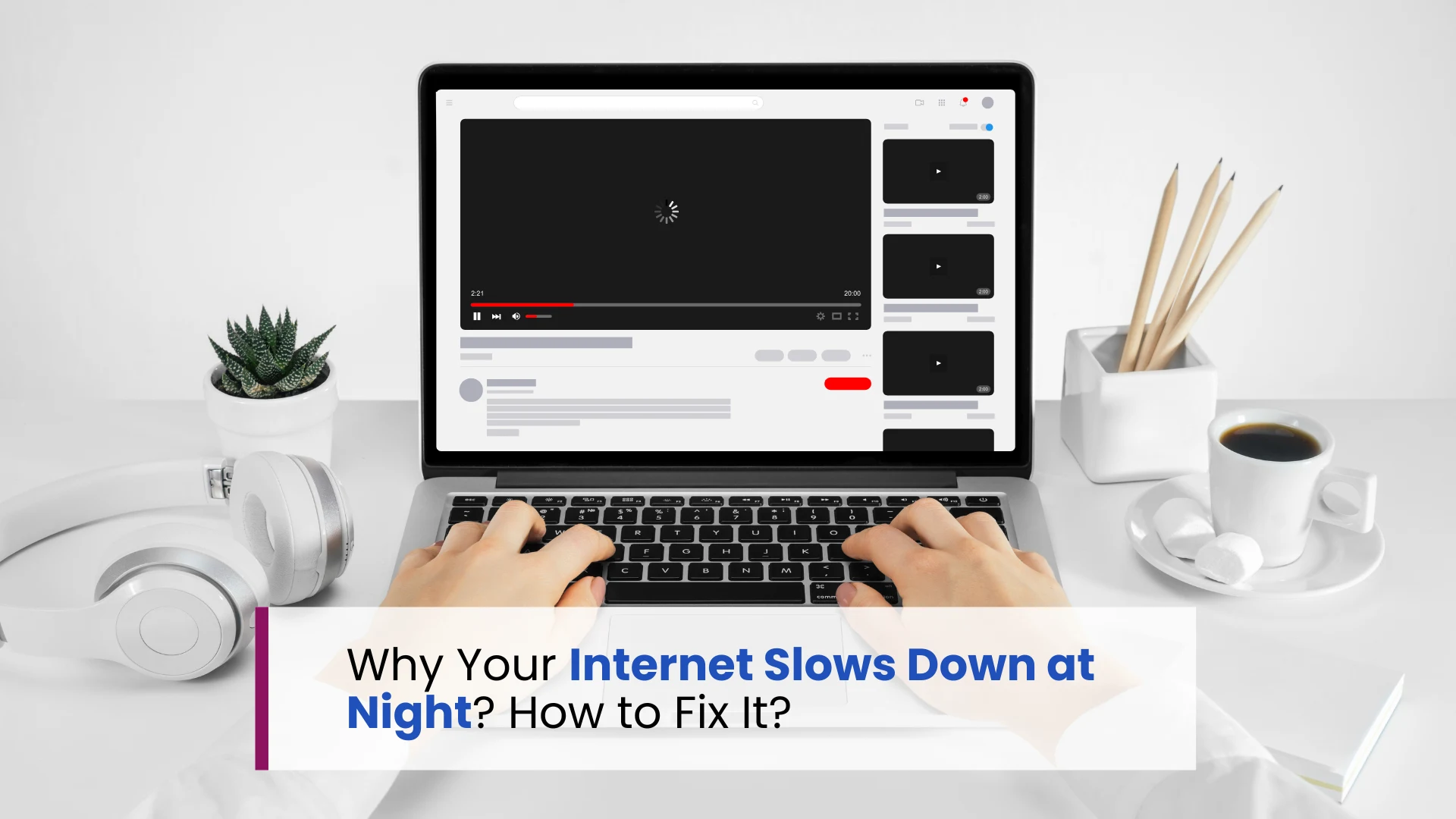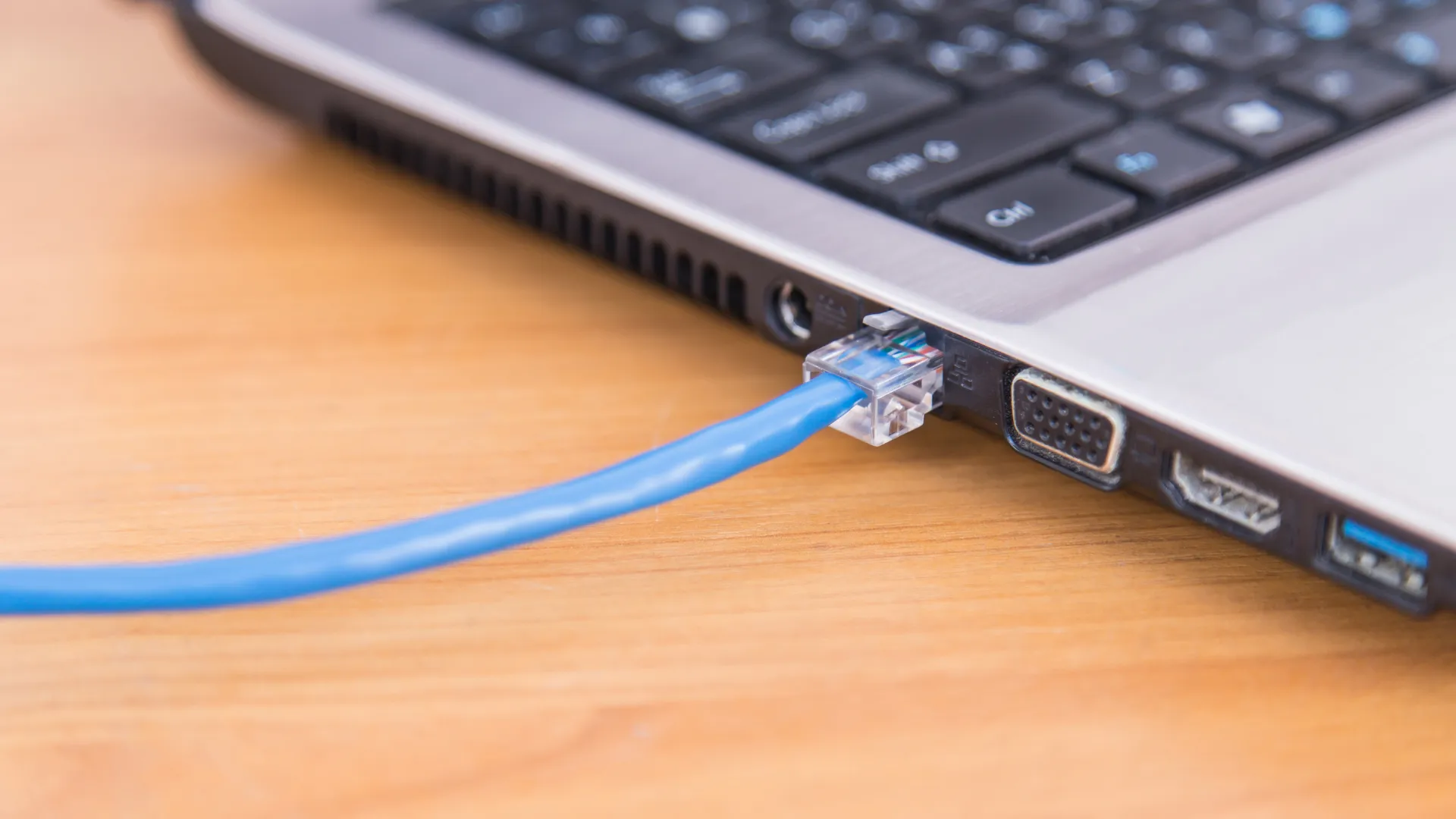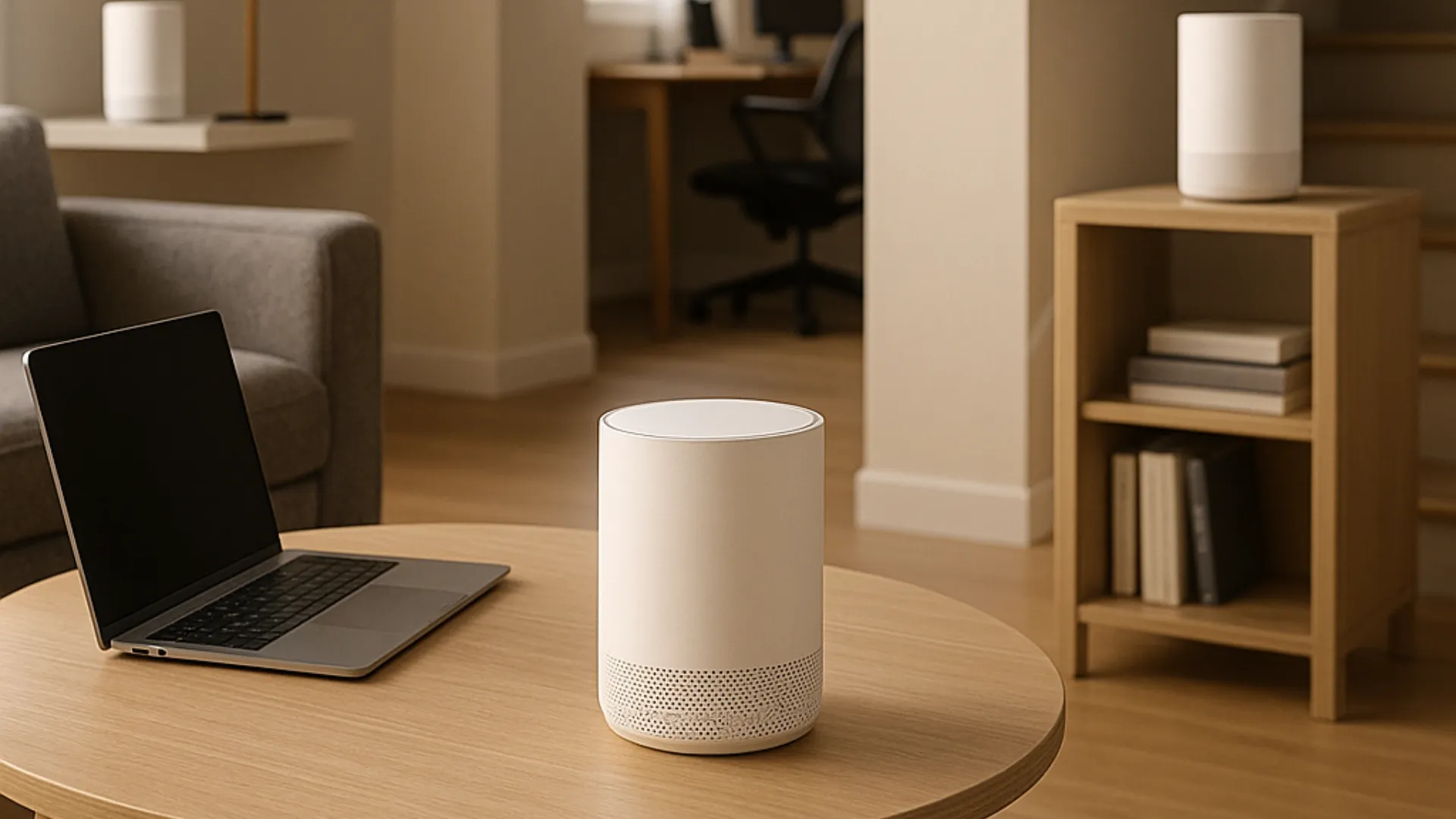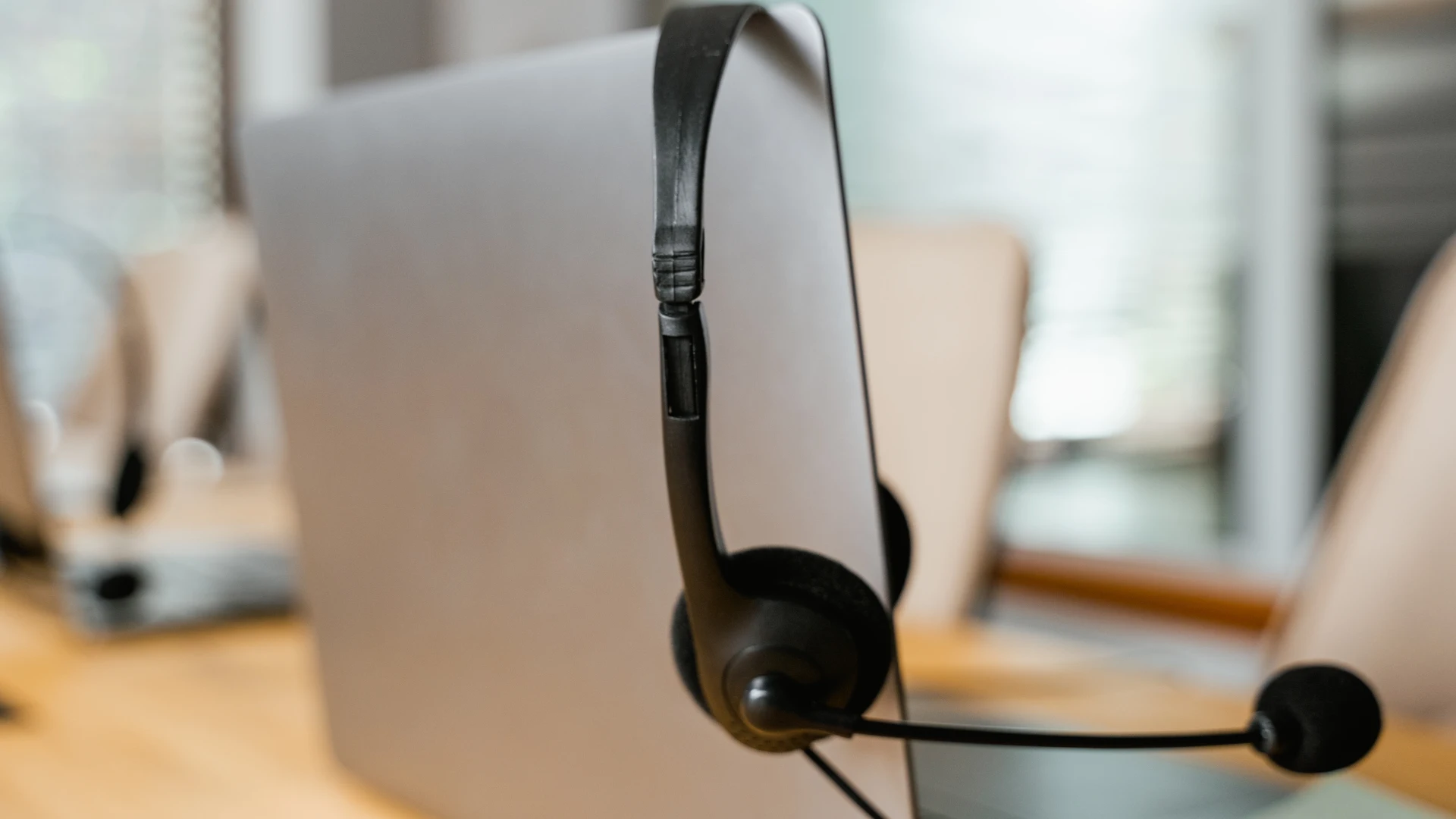
April 22, 2025
Why Your Internet Slows Down at Night? How to Fix It?
You've had a smooth day browsing, working, or streaming, but as the evening sets in, your internet starts acting up. Pages load slowly, videos buffer endlessly, and gaming becomes a frustrating experience. If this sounds familiar, you're not alone. Many users experience this common issue and wonder: Why does my internet slow down at night?
In this comprehensive guide, we’ll explore the real reasons behind this phenomenon and provide practical, easy-to-follow solutions to ensure a fast and stable connection, even during peak evening hours.
Why Does the Internet Slow Down at Night?
As many people experience this issue daily, and while it might seem mysterious, there are several practical reasons behind it. Let’s break them down in a way that’s easy to understand:
1. Network Congestion (Peak Usage Time)
Imagine a busy highway during rush hour. That’s what happens to the internet between 8 PM and 12 AM in most Bangladeshi homes. This is when everyone is back from work or school, relaxing, and going online—streaming TV shows, watching YouTube, playing games, or video chatting with friends and family.
Your internet provider gives a certain amount of capacity to each area. When too many people try to use that capacity at the same time, it gets overloaded, just like too many cars on the road. As a result, everyone’s connection becomes slower.
2. Shared Bandwidth in Residential Areas
In many neighborhoods, people share the same internet infrastructure. Think of it like a shared water tank—when more people open their taps at the same time, water pressure drops for everyone.
At night, when many households in your area start streaming movies or playing online games together, the shared internet line gets crowded. This high demand makes it harder for each individual home to get fast, smooth internet.
3. ISP Throttling During Peak Hours
Sometimes, your internet service provider (ISP) may purposely slow down certain types of online activities during peak hours. This is done to make sure everyone gets a fair share of the connection.
If you notice that your internet speed drops only in the evening but is perfectly fine during the day or late at night, it could be a sign that your ISP is controlling or limiting speeds during busy hours to balance overall usage.
4. Wi-Fi Interference Inside the Home
Believe it or not, things inside your own home can interfere with your internet. Devices like televisions, microwaves, Bluetooth speakers, or even thick walls can weaken your Wi-Fi signal.
In the evening, when more family members are using devices at the same time—smart TVs, mobile phones, gaming consoles, or laptops—the signal can become less stable. This interference can make your internet seem slower, even if your internet speed from the ISP is the same.
5. Outdated Networking Equipment
Your router and modem are like the gateways for your internet. If they are old or not designed for high-speed usage, they can slow things down, especially when several people are using the internet at once.
Devices that don’t support the latest Wi-Fi technologies (like dual-band or Wi-Fi 5/6) can struggle to keep up during busy times. This is especially noticeable at night when everyone in the house is connected.
6. Background Updates and Downloads
Many of our devices—such as smartphones, laptops, and gaming consoles—are set to download software updates at night by default. This is done to avoid interrupting your day.
But if multiple devices start downloading large updates while you’re trying to watch a movie or join a video call, it can take up a lot of your internet bandwidth and slow everything else down without you even realizing it.
How to Fix Internet Slowdowns at Night?
Now that we know why internet slows down at night, let’s look at some effective ways to make things better. These steps can help you enjoy smoother streaming, gaming, or working, even during peak hours:
1. Upgrade Your Internet Plan
Sometimes, slow internet simply means your plan isn’t strong enough for your household's daily needs.
For example, if several people in your home are streaming in HD, attending video calls, or gaming at the same time, your current package might not have enough speed to handle all of it. Upgrading to a higher-speed plan can provide the extra bandwidth your family needs at night.
2. Use Ethernet for Critical Devices
If you're doing something important like gaming, working remotely, or video calling, connect your device directly to the router using an Ethernet cable.

Wired connections are generally faster, more stable, and unaffected by Wi-Fi interference, giving you a much smoother experience during high-demand hours.
Related Blog: Wi-Fi vs. Ethernet: Which One Is Best?
3. Invest in a Modern Dual-Band or Tri-Band Router
If you're using an older router, it may struggle to keep up when many devices are connected, especially during busy evening hours.
Modern routers come with dual-band or tri-band technology. This means they can broadcast multiple Wi-Fi signals at the same time, such as 2.4 GHz and 5 GHz.
- The 2.4 GHz band is slower but has a longer range, making it good for basic things like browsing or checking email.
- The 5 GHz band is faster but works best at shorter distances—perfect for activities like streaming, gaming, or video calls.
By automatically balancing your devices across different bands, these routers help reduce congestion and improve speed where it’s needed most. Routers like TP-Link Archer C6, Tenda AC10, or D-Link DIR-825 are popular dual-band options.
4. Limit Bandwidth-Hungry Activities at Night
Activities like downloading large files, syncing with cloud storage, or updating software can consume a lot of your internet speed without you noticing.
Try scheduling these tasks for late at night or early morning so they don’t interfere with your peak-hour browsing or streaming.
5. Set Up Quality of Service (QoS) on Your Router
Most modern routers come with a feature called Quality of Service (QoS), which lets you prioritize important tasks like video calls or online classes over less urgent ones like downloads.
To set it up, log in to your router by typing its IP address (like 192.168.0.1 or 192.168.1.1) into your browser. Then go to the QoS settings section—usually found under Advanced Settings or Traffic Control.
From there, you can choose which devices or types of traffic should get priority. Some routers even have simple presets like “Gaming” or “Streaming” to make it easier.
6. Use Mesh Wi-Fi or Wi-Fi Extenders
If you’re facing slow internet in certain corners of your home, it might be a signal problem rather than an actual internet issue. A mesh Wi-Fi system or Wi-Fi extenders can boost your signal and help cover your entire home more evenly.

Mesh Wi-Fi is especially effective because it creates a network of connected devices that work together to eliminate dead zones, making sure every room, upstairs or downstairs, gets strong and stable coverage.
7. Monitor and Limit the Number of Connected Devices
Every connected device, from phones and smart TVs to laptops, uses a portion of your internet bandwidth. Even if a device isn’t actively being used, it may still be running background tasks like syncing data or downloading updates—devices such as smart TVs, gaming consoles, phones, tablets, and smart home devices like security cameras or voice assistants.
To improve speed, consider disconnecting idle devices, limiting guest access, or prioritizing devices on your router. This helps reduce the load and ensures better performance for important tasks like video calls and streaming.
8. Update Your Router’s Firmware
Just like your phone or computer, your router also needs occasional software updates. These updates, called firmware updates, can fix bugs, improve performance, and even enhance speed or security.
Manufacturers often release firmware updates to help routers handle more devices efficiently or to improve stability during peak hours.
Related Blog: How to Update Your Router's Firmware?
When to Contact Your ISP?
If you’ve tried everything and your internet still slows down at night, it’s time to contact your ISP. Here’s what to ask:
- Are there known congestion issues in your area?
- Do they throttle speeds during certain times?
- Are there plans with higher bandwidth

Sometimes a technician visit or line check may reveal infrastructure issues or signal drops that aren’t visible to you.
Conclusion
When your internet slows down at night, it's often due to high traffic, outdated equipment, or limitations from your internet service provider. But the good news is—you’re not stuck. With a few smart upgrades, settings adjustments, and better network habits, you can enjoy a smoother online experience even during peak hours.
Choosing the right service provider also makes a big difference. With Carnival Internet’s reliable Home Internet plan, you can count on consistent speed, modern fiber infrastructure, and better performance at night—perfect for streaming, gaming, or working without interruptions.
Take control of your connection, make informed choices about your plan and equipment, and enjoy stable internet no matter the time of day.